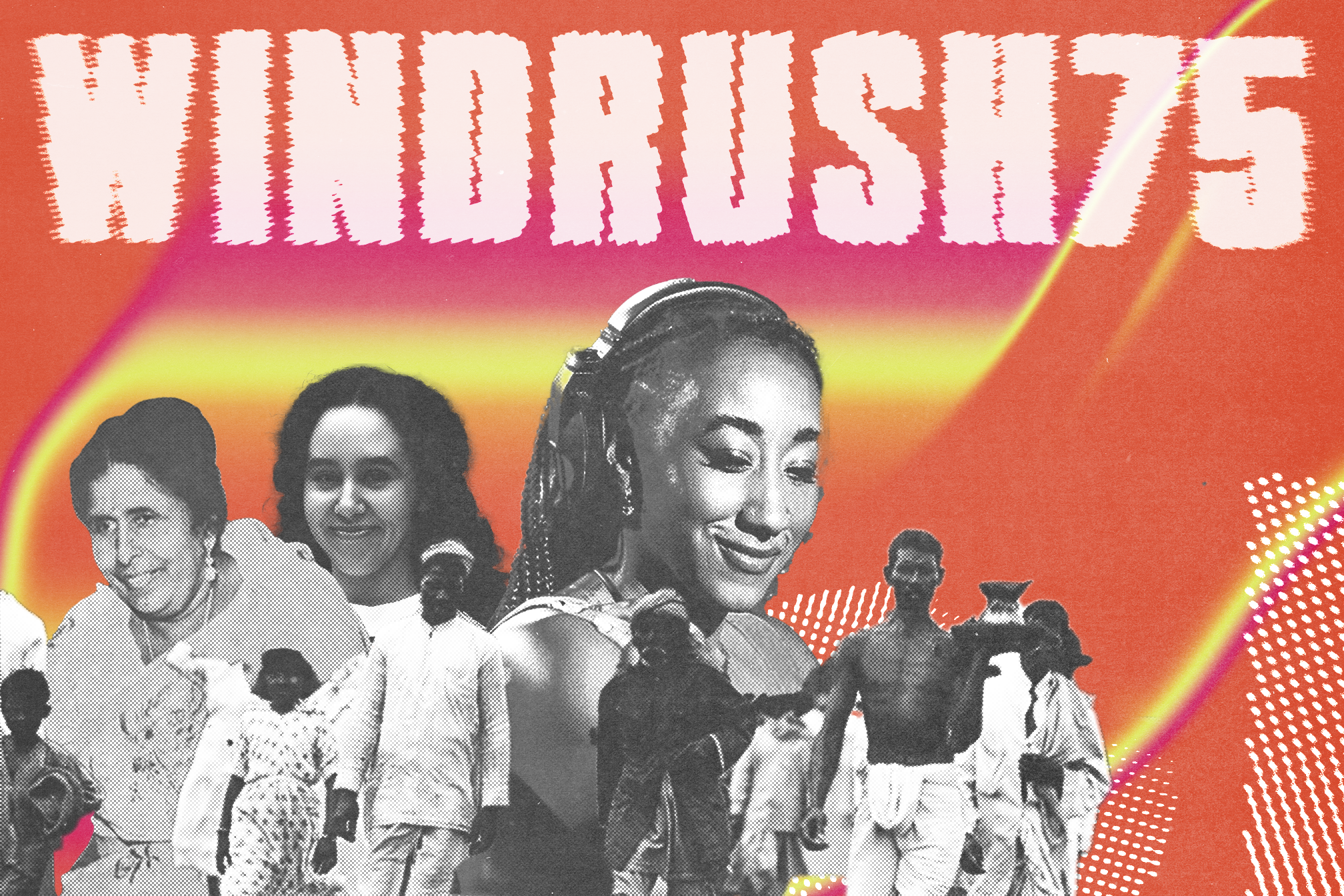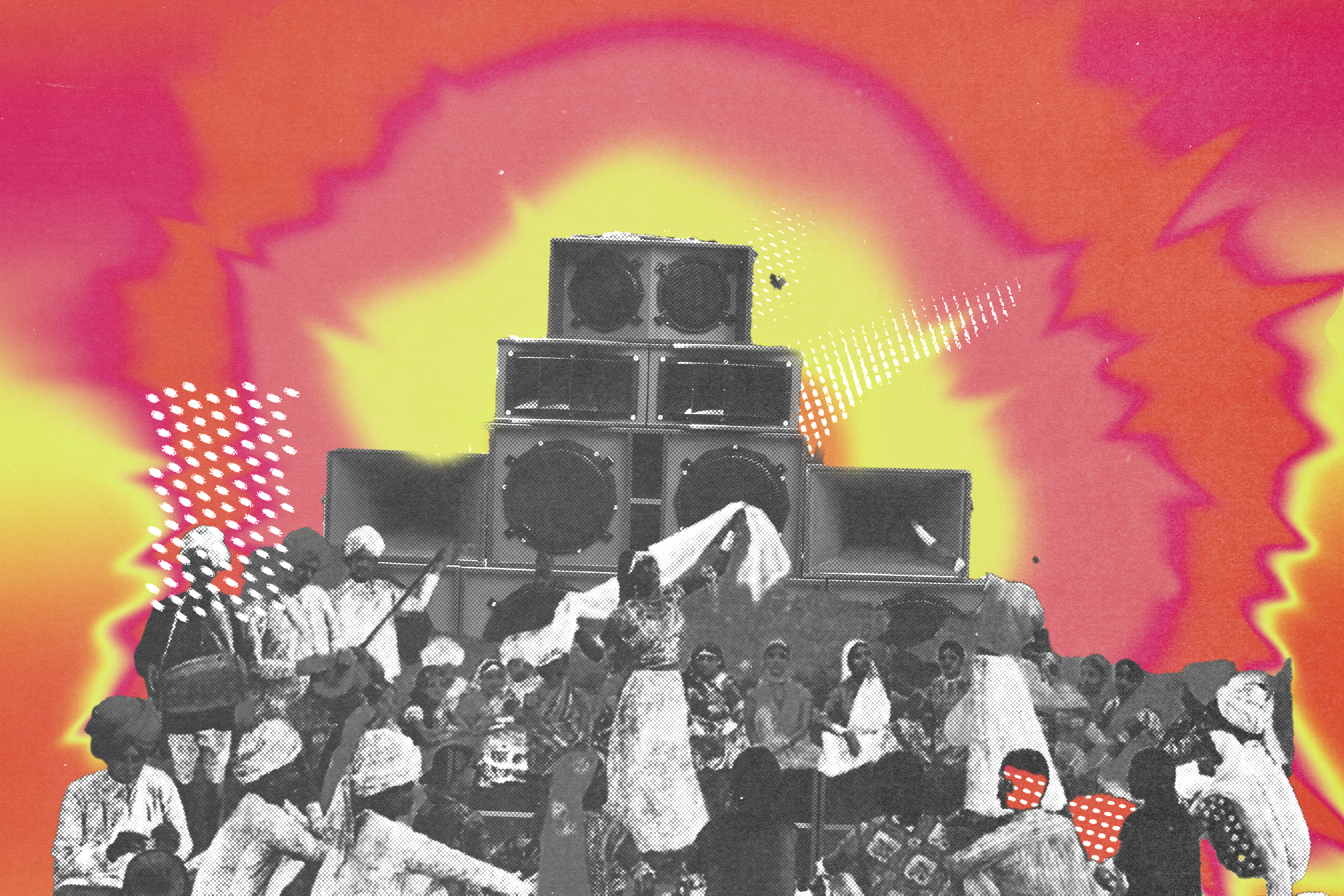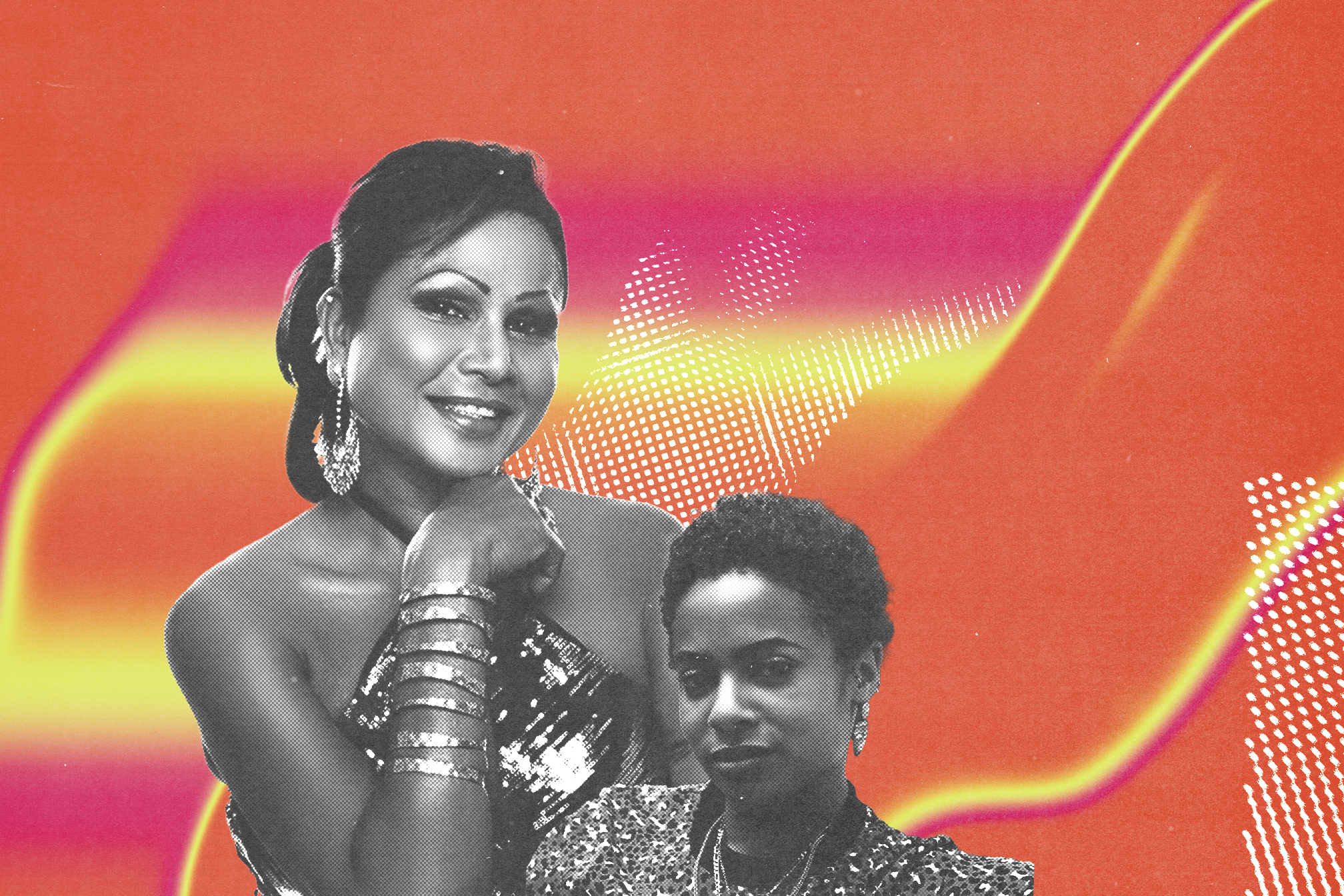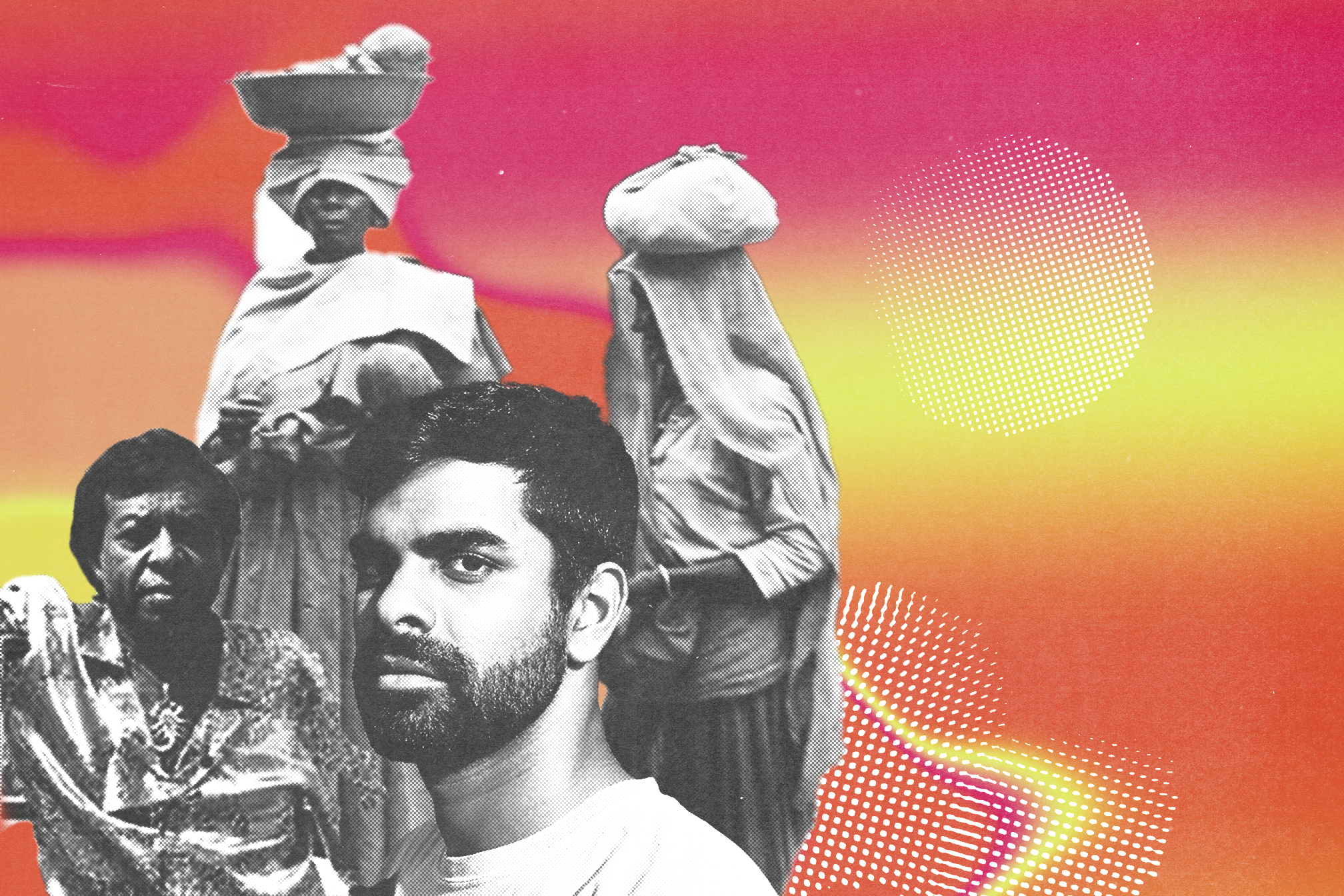 Features
Features
“Indo-Caribbeans are underrepresented”: How Windrush migration inspired a truly global club music movement
Indo-Caribbean culture is an undersung story of Windrush migration with a rich cultural history — including the East-meets-West influences in hybrid dance music
Mixmag is running an editorial series to mark the 75th anniversary of Windrush, find out more here
At 17, Riaz Bacchus was DJing on pirate radio stations in London when he stumbled on a genre of music that seemed to perfectly express his heritage. “It was Bollywood and soca mashed together – both Indian and Caribbean,” he says, now 39. “My parents are Guyanese, Indo-Caribbeans, so it felt like this was my identity. It sounded natural.”
That music is known as chutney – a polyrhythmic blend of yearning Hindi vocals and clattering calypso beats. It is a cultural legacy that Indian indentured labourers developed in the Caribbean when an estimated 500,000 of them were brought to work on the island plantations in the 19th Century, following the abolition of slavery. Many of the Indian labourers subsequently went on to build their own communities in countries like Guyana and Trinidad.
“It is originally folk music that Indian labourers would sing on the plantations while they worked,” Bacchus explains. “In the generations since, it has evolved to include Caribbean rhythms and sounds, creating the soca/calypso/Hindi mix that’s played today.”
Read this next: How Trojan Records founder Lee Gopthal created a musical legacy of love, hope and unity
Bacchus’ descendants made the journey from India to Guyana over a century ago, and in the 1950s his parents travelled as part of the Windrush generation to the UK, bringing their diaspora culture to bear on a new setting. His father was a DJ who used to host concerts for the small Indo-Caribbean community in London and as Bacchus came of age, he decided to follow in his footsteps, founding the organisation Chutney in London and performing as DJ Stylz UK.
“There were people around me who didn’t even know that there were Indians in the Caribbean, so I started putting on these cultural nights six years ago to shout about our history,” he says. “It started out as a one-off but we were shocked when it sold out and had to turn people away at the door. Now we have people from all cultures coming through – it’s feel-good music, people can’t help but want to dance to it.”

As we mark the 75th anniversary of the arrival of Empire Windrush this year, the cultural legacy of the Caribbean diaspora is cemented throughout the UK. From soundsystem culture birthing jungle and drum n’ bass, to soca, reggaeton and dancehall all becoming commercial production staples, the region’s influence is massive. Yet, there are certain aspects some feel are undersung.
“Indo-Caribbeans are underrepresented, since we’re only at the beginning of research into the topic of indentured labour,” curator of the Indo + Caribbean exhibition at the Museum of London Docklands, Shereen Lafhaj, says. “Many members of the community came to the UK with the Windrush generation but since there’s no Indo-Caribbean option on the census, we have a very limited understanding of how big that community is.” In 1990, estimates of the British Indo-Caribbean population spanned roughly 20,000 to 30,000 people.
Reasons for this underrepresentation include the dearth of accurate and accessible records, as well as a lack of education on the topic in British schools, possibly because it interferes with the narrative of the Empire’s “triumph of abolition”, Lafhaj explains. While slavery was abolished, a new form of servitude took its place with its subjects still taken from the realm of the Empire.
Read this next: Hak Baker is taking down the powers-that-be and having fun with it
Instead, the history of Indo-Caribbeans in the UK is an oral one comprised of stories, recollections and, crucially, music. From singer Dropati’s 1968 album of Indo-Caribbean wedding songs, to Sundar Popo’s Caribbean swing influences, and Trinidadian Drupatee Ramgoonai’s ’80s chutney soca, which blended fast-paced polyrhythms with her party-forward lyrics, chutney has maintained a hold on the community’s dancefloors and households alike.
In recent years, this music has been expanding beyond the boundaries of its own culture, thanks to selectors like Bacchus and a new generation of crate-digging DJs with Caribbean and South Asian heritages who are mixing influences from across the diaspora.

DJ and broadcaster Tash LC has heritage from Jamaica and St Vincent and over the past year, her lively, free-wheeling sets have begun to delve deeper into the unifying rhythms of the Caribbean. “It’s all about storytelling with DJing – giving people the musical journey from the roots of a sound to the present day,” she says. “I ended up getting really into chutney soca through YouTube recently and it just makes so much sense. When people travel, they bring music, and listeners now are still drawn to that blend of cultures, to familiarity and foreignness.”
Preferring the slower, ’80s chutney of artists like Ramgoonai, rather than the frenetic pace of modern artists like Ravi B, Tash has begun to jump on the mic during sets to explain the music’s context. “I’m getting more into introducing certain songs, so people can understand why I’m playing what I play, as well as feeling it,” she says. “It opens people’s ears up to something new without overwhelming them.”
Read this next: Why the radiogram is a sacred piece of music technology
BBC 6 Music regular and DJ Jamz Supernova sees this music of the blended Caribbean diaspora as intrinsic to the UK’s dancefloors. “The best parts of UK music have come from Caribbean culture, so it’s important to acknowledge those roots,” she says. “We have to understand the web of music and see how soundsystems literally built the speaker stacks for raves, or how the dub music played on them has had a ripple effect on bass-led sound design.”
Growing up among the Caribbean community of New Cross and raised with parents of Jamaican, Irish and Cuban descent, it’s this mix of musical cultures that ultimately influences Supernova’s style the most. “I want to play from dancehall to techno and then go further back to the African diaspora,” she says. “Can a gqom song sit next to soca? It should be able to.”

Testing this storytelling theory out is Pakistani-British DJ Ahadadream, whose energising and often unpredictable sets span everything from bass-forward Sugababes edits to kuduro, UK funky and Punjabi pop vocals. “Discovering new sounds is really what brings me joy and that’s what I want to share, although it does mean people struggle to describe what it is I play,” he laughs. “I guess you could call it Indo-Caribbean, as there are both those influences in the mix. Ultimately, no one going out in the UK can say they’re not influenced by the Caribbean – if they say so, they just don’t know it yet.”
As diaspora-influenced genres become intermixed into newer combinations through the sweaty stomp of the dancefloor, it seems that each selector has made their job a means of driving this evolution, while paying homage to its origins. The music moves forward, just as people’s roots travel deeper.
Read this next: On Sundays, Glorious Sundays, the culture of the Windrush generation came to the fore
For Bacchus, it’s his seven-year-old daughter he is now playing and throwing events for. “The Indo-Caribbean community is so small here, we need to educate future generations to keep the heritage alive,” he says. “When we throw parties we have all ages attending and thanks to social media too, awareness is growing faster than we’ve ever seen before.”
This year, Bacchus will be playing on his own truck at Notting Hill Carnival – marking, to his knowledge, the first time there has been an Indo-Caribbean section at the event – while he is also delivering a guest mix for BBC Asian Network in August for the third year running, helping promote his music to the South Asian community.
75 years from Windrush, it’s clear that there is still plenty more to discover about the legacy of these deeply creative and diverse Caribbean communities. “We just want to show people that we’re here,” Bacchus says. “Come dance with us!”
Ammar Kalia is a freelance writer, follow him on Twitter


